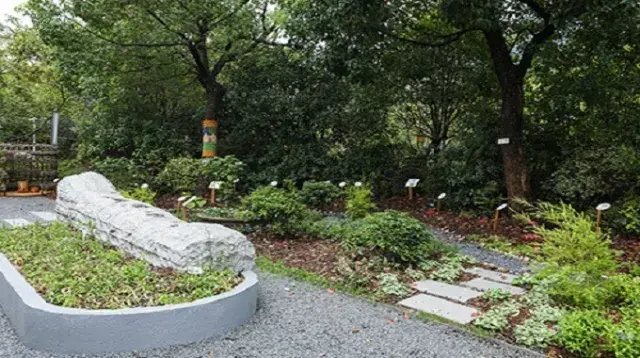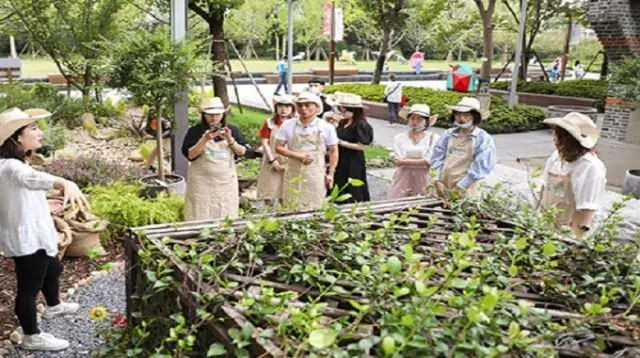The 5th edition of the Botany for Change award is exported to China
After Paris, Marseille and Seoul, the 2020 edition of the Botany for Change award took place in Shanghai.
Found on China’s central coast, Shanghai is the country’s biggest city. Today, its green spaces account for 16% of the city’s surface area. The government aims to achieve 23% by 2035 in order to meet climate targets and improve quality of life for the city’s residents.
Our Botany for Change Award is part of this approach, inviting young botany, horticulture, and landscape architecture students to plant more greenery in and around the heart of the city.
The students’ challenge was to design an urban garden combining creativity, aesthetics, and sustainable development over an area of some 550 m2. And to ensure their ideas really were sustainable, projects had to include collaboration with neighbourhood residents.
The competition was open to all universities across China, potentially some 160,000 students.

The winning project: a ‘bee-friendly garden’
On 1 August 2020, a jury panel made up of botany experts and enthusiasts, including Alain Baraton (Head Gardener at the Palace of Versailles and France’s National Trianon Estate/author of numerous botanical works), created a shortlist of 10 projects from 90 individual entries. They were then put to a vote among the general public.
‘Bee-friendly garden’ certainly stood out, with more than 2,630 votes!

A vision inspired by the world of bees
“The world of bees is full of extraordinary wisdom."
"We hope to draw people’s attention to bees by designing and recreating the friendly relationship between man and nature, man and animals and plants, as well as man and other human beings”.

The garden was unveiled on 11 and 12 September.
The winning team came up with an eco-designed space for sharing and communicating, meeting the needs of residents and in perfect harmony with nature. All the elements of the garden were made from recycled materials (wood, eco-bricks, stone, etc.).
Educational workshops (sowing and producing seeds, fertilisation, water-saving watering techniques, recycling green waste...) are regularly offered to residents to cover development and maintenance. More than a garden, it’s also a space for living: a traditional bread oven is set to be added, alongside a weekly market (selling garden produce).

The Bund, a welcoming environment
In the heart of this megalopolis exists a famous waterfront promenade lined with buildings from the colonial era, known as The Bund.
This symbolic location, lively and popular with tourists, is now home to the ‘bee-friendly garden’, the urban garden of the future.
Valued partnerships
For this ambitious challenge, our Foundation joined forces with a local NGO: ‘Clover Nature School’.
Highly active and committed to Shanghai’s urban re-vegetation, the organisation is reviving the city by creating community gardens that involve local citizens. To date, more than 300 gardens have been created with the help of some 2,000 volunteers.
